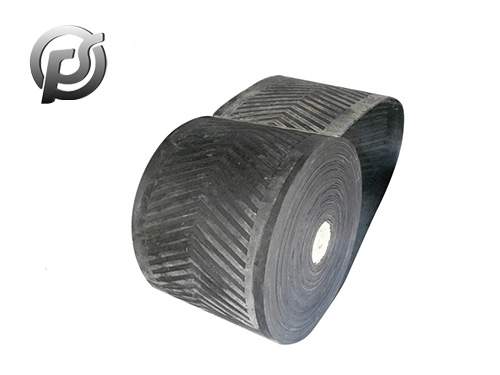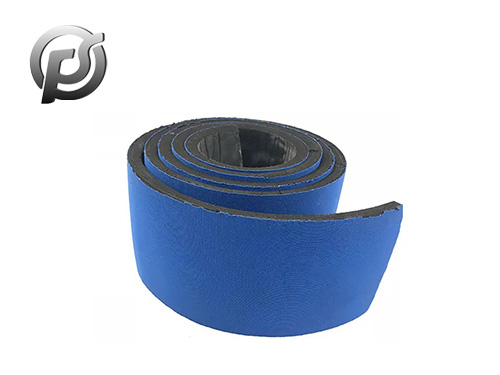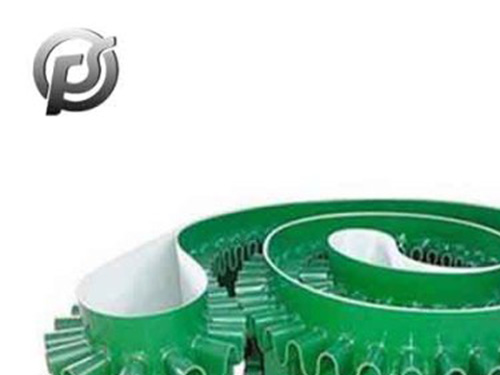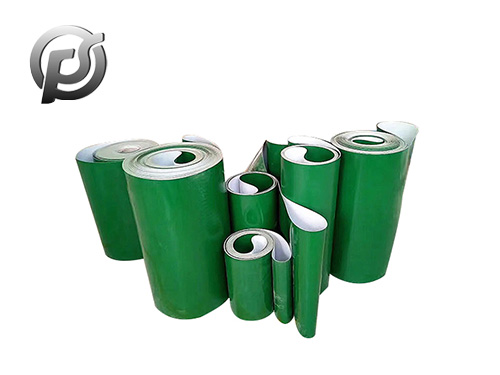Rubber conveyor belts offer several advantages in material handling and transportation systems across various industries. Here are some of the key advantages of using rubber conveyor belts:
High Tensile Strength:
Rubber conveyor belts are known for their high tensile strength, making them capable of handling heavy loads and bulk materials.
Excellent Flexibility:
Rubber belts are flexible and can easily conform to the shape of the pulleys and conveyor systems, allowing for smoother and more efficient operation.
Impact Resistance:
Rubber has natural shock-absorbing properties, providing resistance to impact and reducing the wear and tear caused by the constant loading and unloading of materials.
Abrasion Resistance:
Rubber conveyor belts are highly resistant to abrasion, ensuring a longer service life even when conveying abrasive materials.
Good Troughability:
The flexibility and pliability of rubber belts contribute to good troughability, allowing them to adapt to the contours of the conveyor system and maintain a consistent flow of materials.
Weather Resistance:
Rubber conveyor belts are resistant to various weather conditions, including sunlight, rain, and temperature extremes. This makes them suitable for both indoor and outdoor applications.
Chemical Resistance:
Rubber materials can be formulated to resist the effects of chemicals, oils, and other substances, enhancing the belt's durability in environments where exposure to such substances is common.
Low Noise Level:
Rubber conveyor belts generate less noise during operation compared to some other materials, contributing to a quieter and more comfortable working environment.
Energy Efficiency:
The flexibility and reduced friction of rubber belts contribute to energy efficiency by requiring less power to drive the conveyor system.
Easy Splicing and Repairs:
Rubber belts are relatively easy to splice, allowing for convenient repairs and maintenance. This feature minimizes downtime and helps extend the overall lifespan of the conveyor system.
Customization and Variety:
Rubber conveyor belts are available in various grades and configurations to suit specific applications, including heat-resistant, flame-resistant, and oil-resistant options.
Cost-Effective:
Rubber conveyor belts are often cost-effective in terms of initial purchase and long-term maintenance. Their durability and resistance to wear reduce the need for frequent replacements and repairs.
Compatibility with Conveyor Systems:
Rubber belts are compatible with a wide range of conveyor systems, including flat, troughed, and inclined conveyors, providing versatility in material handling applications.
High Friction Coefficient:
The high friction coefficient of rubber helps prevent slippage between the belt and the pulleys, ensuring efficient material transfer.
Suitability for Various Industries:
Rubber conveyor belts find applications in diverse industries such as mining, agriculture, manufacturing, logistics, and food processing, showcasing their versatility.
In summary, the advantages of rubber conveyor belts include their high tensile strength, flexibility, impact and abrasion resistance, weather and chemical resistance, low noise level, energy efficiency, ease of splicing and repairs, customization options, cost-effectiveness, and compatibility with different conveyor systems. These features make rubber conveyor belts a popular choice for efficient and reliable material handling.

 PE Conveyor Belts: Characteristics, Applications, and Advantages
PE Conveyor Belts: Characteristics, Applications, and Advantages
 Stone Conveyor Belt: Enhancing Efficiency and Productivity in Material Handling
Stone Conveyor Belt: Enhancing Efficiency and Productivity in Material Handling
 Optimizing Operations with PE Conveyor Belts: Durability, Efficiency, and Versatility
Optimizing Operations with PE Conveyor Belts: Durability, Efficiency, and Versatility